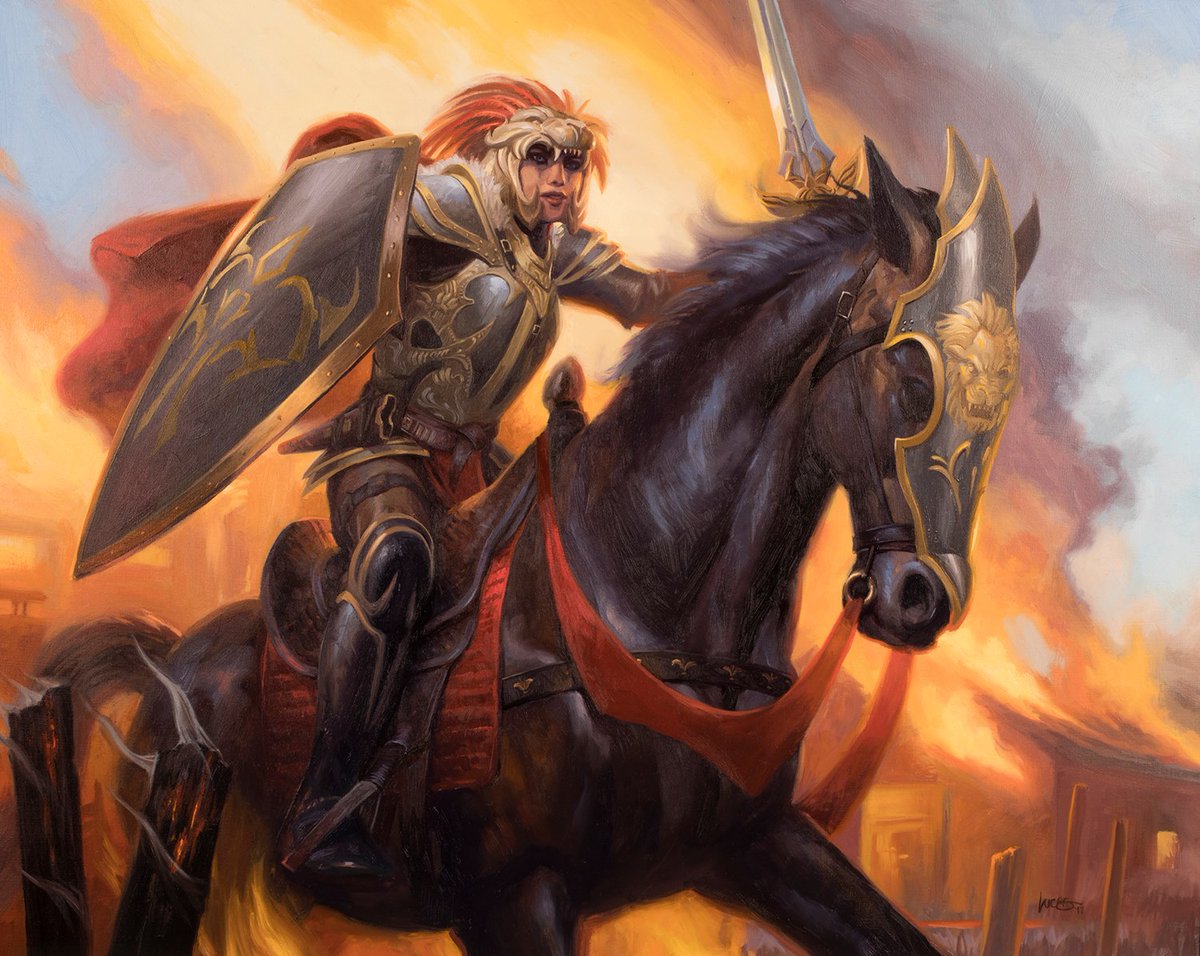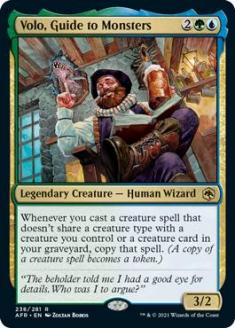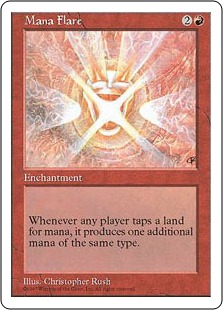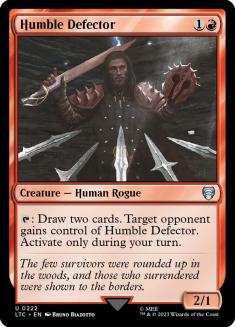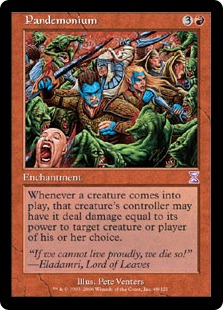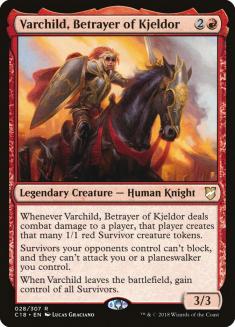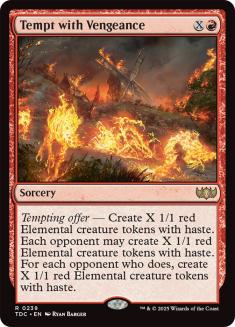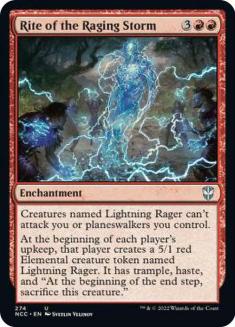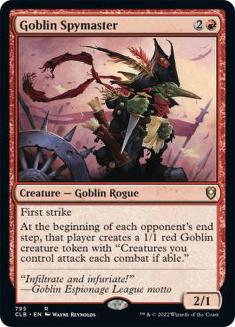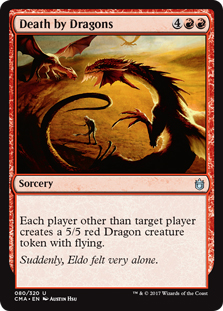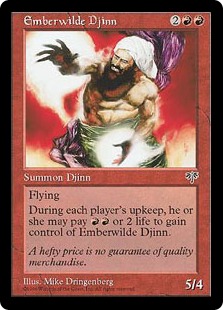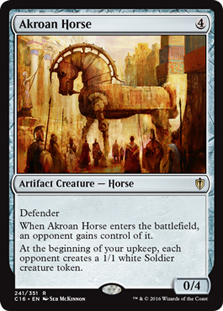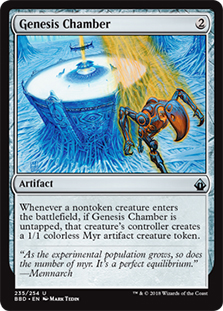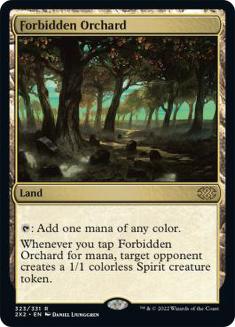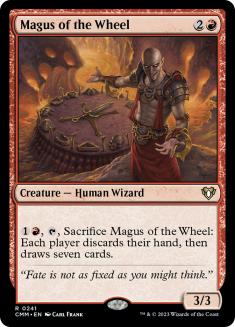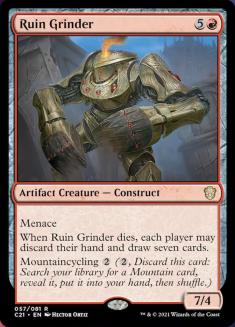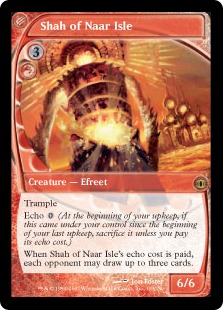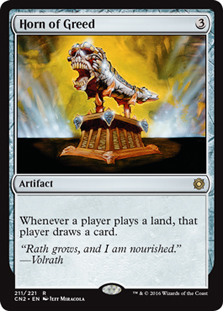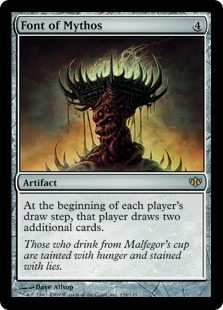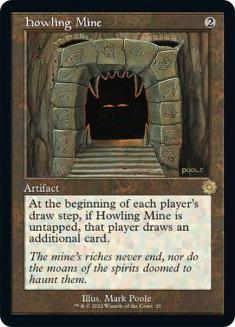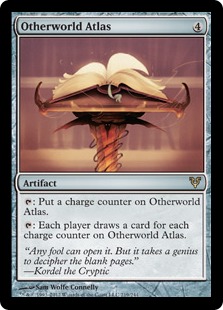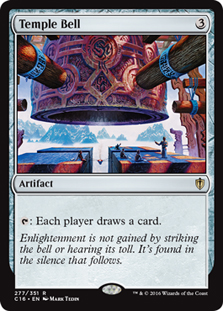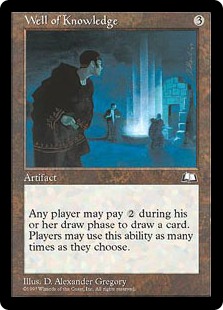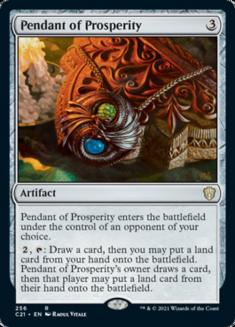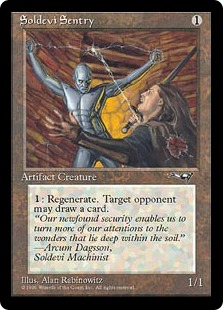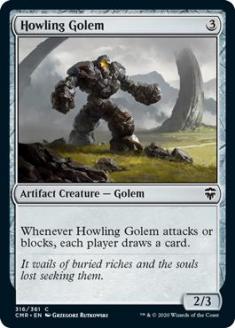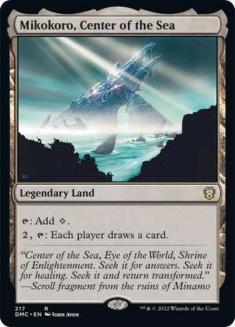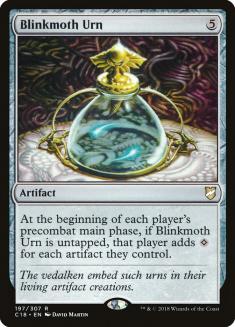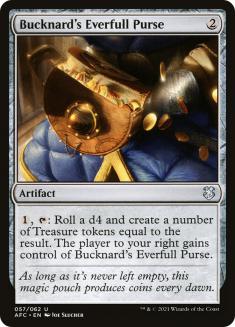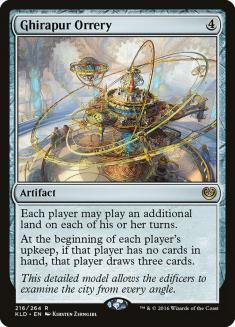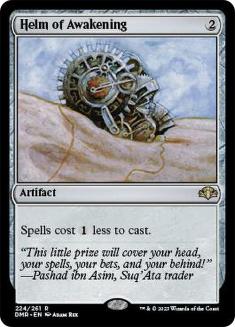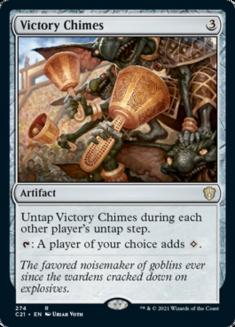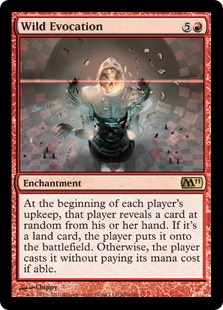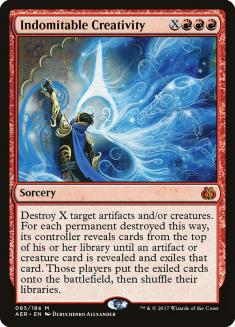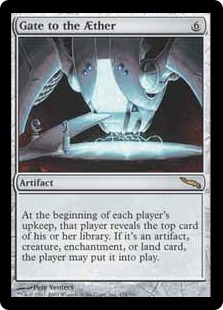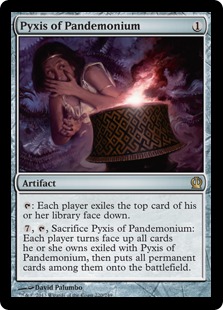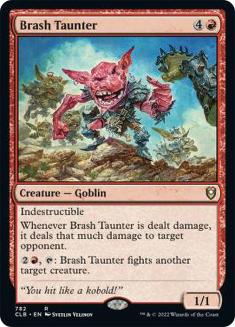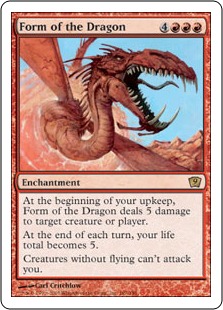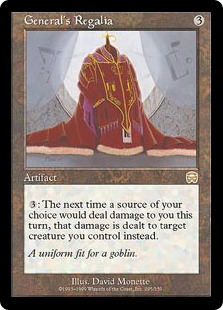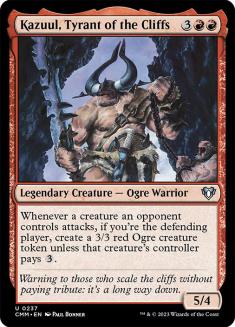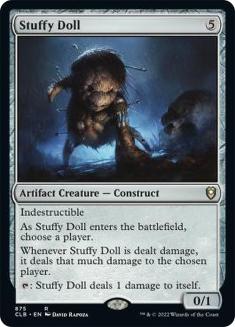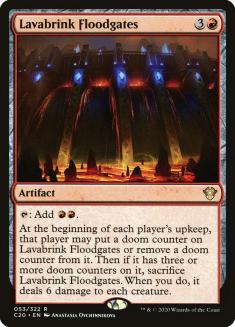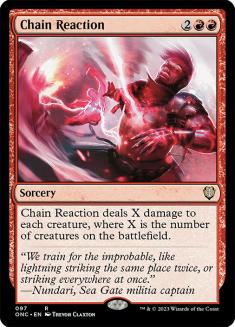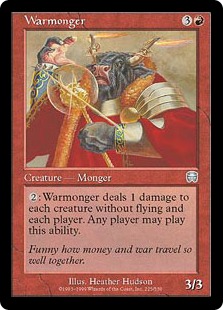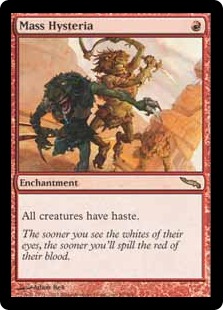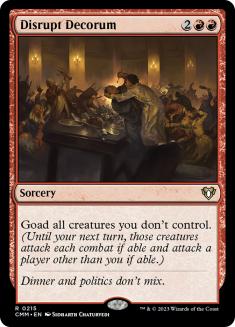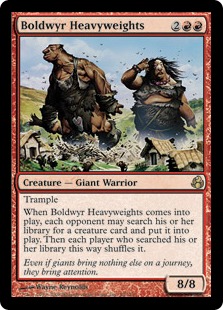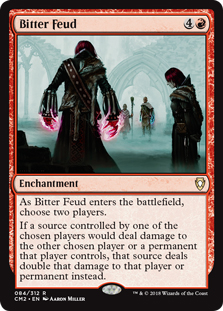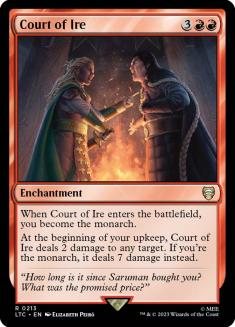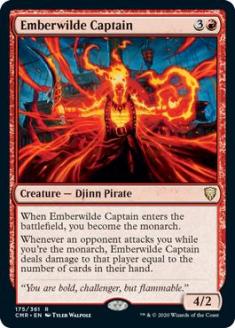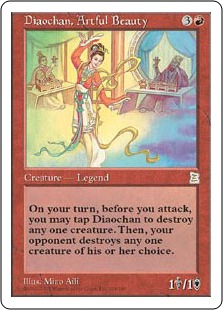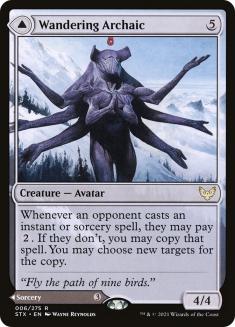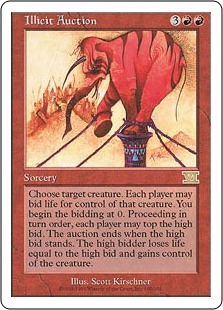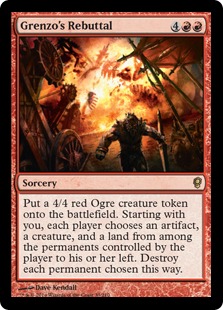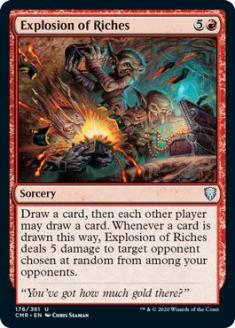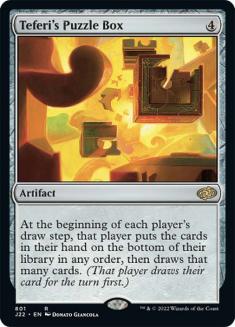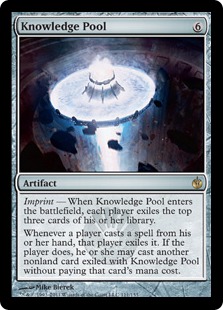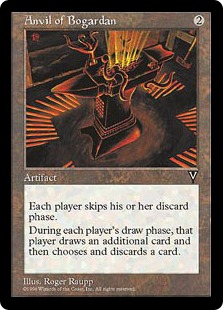My friend Crystal is a ringer when we’re at karaoke. She gets up on stage, something vaguely Italian starts playing, and when she proceeds to belt out a song from an opera I’ve never heard of, people are very impressed. It’s beautiful and confusing. Everyone applauds.
On the other hand, I have an aggressively mediocre voice and awful Irish brogue that get me through “Breakfast at Tiffany’s” by the Deep Blue Something. It’s not a particularly great song by any metric, but people usually sing along to the one-hit wonder from the 90s. You’ll probably have it stuck in your head for a while. It’s catchy and silly like that.
Commander, to me, is a lot like karaoke: there are very few ways to do it wrong, so it needs to be about what you want to get out of the experience. When I started, I thought I wanted to be an opera singer. I was dead wrong.
Striking a Balance
Writing about competitive Limited environments left me obsessed with my Magic Arena rank, having the correct mental ratings assigned to each card, and being the first to break new strategies. My idea of fun was poring through databases of performance statistics to see where I could get a slight edge. Magic was consuming me.
I hit up my buddy Rachel and let her know I was building my first Commander deck. We met back when she was doing stand-up in Denver, playing casual games at the same dive bar everyone did karaoke at. You know, before she had one of the best EDH podcasts and was a CAG member. I was fortunate to have one of the best brewing minds out there helping me build my Volo, Guide to Monsters deck.
All of my initial instincts were wrong. I saw a powerful card, and I put the powerful card in the deck. Like Chipotle’s first attempt at queso, I had no regard for flavor. I asked for a Mana Crypt for Christmas. By and large, I was winning more than I was losing, and I was miserable. I made an even sweatier Jacob Hauken, Inspector deck and felt worse. When I would watch Rachel play, she was having a blast finding cool uses for fringe cards.
There’s no problem casting Mana Crypt or playing Commander to win. It simply wasn’t fun for me.
That’s where Deep Red Something was born. It’s the most fun you’ll ever have losing a game.
Deep Red Something
The goal is simple: give our opponents as many resources as possible, playing a bare minimum of cards to keep us alive.
So why not play a few colors whose color pie aligns better with the goal than red? That’s a great question and one I thought about at length.
First, one big knock on group hug decks is that they tend to prolong games. I can assure you that this deck does nothing of the sort, giving opponents access to big chunks of damage and explosive turns that let their decks do their things.
Second, red gives us access to cards you rarely see, like Boldwyr Heavyweights and Hired Giant, which appear in 0.12% and 0.01% of EDHREC decks, respectively. I love casting a creature where everyone at the table is legitimately unsure if I made a convincing fake card or not. They’re real, and they’re not spectacular.
Lastly, I think it’s funny. The deck is an abomination in red, and people are unsure how to respond to it.
Tokens for All
Our Commander slot is home to Varchild, Betrayer of Kjeldor, one of the few cards that will find you delving into the world of politics. There’s always someone who can find a use for a few Survivor tokens, not to mention the opportunity to create a plethora of them when Varchild’s War-Riders is also on the battlefield. However, we’re pretty bad at making them relevant for our opponents, with Infinite Hourglass or Agitator Ant occasionally buffing them.
We have a whole host of other ways to distribute creatures and tokens, though. When playing Death by Dragons or Akroan Horse, I highly recommend favoring everyone who isn’t the player directly to your left. Since they’re the first person to take advantage of your gifts, consider this one way you can level the playing field. Forbidden Orchard in a mono-red deck is not a misprint.
You Get a Card! You Get a Card!
One of the biggest pains about this deck is how frequently our opponents have to discard to hand size. Anvil of Bogardan could easily make this deck if I weren’t trying to keep it reasonably priced. As it stands, they’re generally able to make the best of a given turn without worrying about missing land drops. Magus of the Wheel and Ruin Grinder can be contentious, as sometimes you’ll force them to discard a critical piece of a plan, but are necessary evils to ensure we don’t run out of gas.
Sharing the Wealth
Sure, we run our ramp package and an assortment of rocks, but we’re also trying to hook up our opponents with bonus lands and mana. Try to work out a deal to keep Bucknard’s Everfull Purse going around the table, but don’t be too disappointed if it grinds to a halt. The only politics I play with Victory Chimes is finding out which phase the colorless mana would be best for them.
Celebration over Chaos
We’re intentionally light on chaos, preferring cards like Wild Evocation and Gate to the Aether that create feels-good moments when a player hits something huge. Our opponents are also highly incentivized to keep us alive once landing anything here – Indomitable Creativity aside – as our freebies are broadly helpful to them.
Stayin’ Alive
Speaking of staying alive, we play a few defensively-oriented cards that disincentivize attacking and can represent win conditions if we aim to end the game. Of course, I’ve also had games with General’s Regalia and Soldevi Sentry on the battlefield that led to opponents attacking so that they could draw a boatload of cards.
Sweep the Leg
Sometimes, things get out of hand. In terms of true sweepers, we do have one copy of Chain Reaction if it looks like the game will run unfortunately fast. Otherwise, cards like Warmonger and Lavabrink Floodgates serve as tools for our opponents to use or add counters to at their discretion. I rarely make the final decision on either.
Break the Stall
Sometimes, we want things to get out of hand. When everyone has access to a ton of cards and resources, you can reach a stall that feels like waiting for someone to combo off. Disrupt Decorum is my favorite way to break it up and force people to interact with each other. The jury is still out for me on Boldwyr Heavyweights: it’s entertaining in the right pod, but can be too much if someone is inclined to fetch their Eldrazi and end things quickly.
Monarchy or Anarchy?
Sadly, we cannot immediately concede our position as the monarch, but I love being able to give it away and keep the action flowing at the table. Emberwilde Captain plays well defensively if opponents don’t believe we’re just trying to hang back and be chill. At the same time, Court of Ire hits whatever the majority is concerned about for two points of damage at a bare minimum.
Doing Deals
When we need to make a deal, we’re happy to start here with a pair of powerful effects. Diaochan, Artful Beauty is excellent when she lives, but Wandering Archaic is bonkers when it gets going. I think I helped set a world record Feather, the Redeemed last weekend.
“Wait, That’s a Card?”
And we’ll end with a few “What does that do?” cards that also exist in under 0.01% of EDHREC decks. Illicit Auction is my favorite, as life is a great bidding tool in Commander, and it gets everyone in on the action.
The Deck
Creatures (21)
- 1 Diaochan, Artful Beauty
- 1 Warmonger
- 1 Soldevi Sentry
- 1 Iron Myr
- 1 Varchild's War-Riders
- 1 Emberwilde Djinn
- 1 Hired Giant
- 1 Stuffy Doll
- 1 Shah of Naar Isle
- 1 Boldwyr Heavyweights
- 1 Kazuul, Tyrant of the Cliffs
- 1 Akroan Horse
- 1 Humble Defector
- 1 Magus of the Wheel
- 1 Goblin Spymaster
- 1 Howling Golem
- 1 Agitator Ant
- 1 Brash Taunter
- 1 Emberwilde Captain
- 1 Wandering Archaic
- 1 Ruin Grinder
Lands (36)
Spells (42)
- 1 Horn of Greed
- 1 Howling Mine
- 1 Mana Flare
- 1 Sol Ring
- 1 Helm of Awakening
- 1 Well of Knowledge
- 1 Form of the Dragon
- 1 Mana Geyser
- 1 Genesis Chamber
- 1 Mass Hysteria
- 1 Gate to the Aether
- 1 Blinkmoth Urn
- 1 Infinite Hourglass
- 1 Illicit Auction
- 1 Fire Diamond
- 1 Mind Stone
- 1 Pandemonium
- 1 General's Regalia
- 1 Font of Mythos
- 1 Chain Reaction
- 1 Everflowing Chalice
- 1 Wild Evocation
- 1 Temple Bell
- 1 Death by Dragons
- 1 Otherworld Atlas
- 1 Pyxis of Pandemonium
- 1 Tempt with Vengeance
- 1 Grenzo's Rebuttal
- 1 Bitter Feud
- 1 Thought Vessel
- 1 Rite of the Raging Storm
- 1 Ghirapur Orrery
- 1 Indomitable Creativity
- 1 Disrupt Decorum
- 1 Victory Chimes
- 1 Arcane Signet
- 1 Pendant of Prosperity
- 1 Aeon Engine
- 1 Lavabrink Floodgates
- 1 Court of Ire
- 1 Explosion of Riches
- 1 Bucknard's Everfull Purse

Other Considerations
Teferi’s Puzzle Box is silly enough that I’ve considered it. Sometimes it will be a net negative for people, so it’s still on the cusp. Knowledge Pool is too expensive for the effect; still, if your playgroup likes casting giant monsters, I could see finding a slot for it.
Tempting Contract is deserving of inclusion; I’m just having trouble cutting anything for it. And, again, if cost was no obstacle, I’d have an Anvil of Bogardan in here.
Final Thoughts
Having run this deck a few times, I think it has made me a better pod mate. Taking a genuine interest in what everyone else is doing helps remove the blinders that trying to grind out a win can put on. It feels like everyone’s turn is your turn, too. You’ve invested in what they’re doing. You’re rooting for their success. It’s a feeling I rarely get in Magic, so it’s something I cherish now. People don’t seem to mind it, either.

